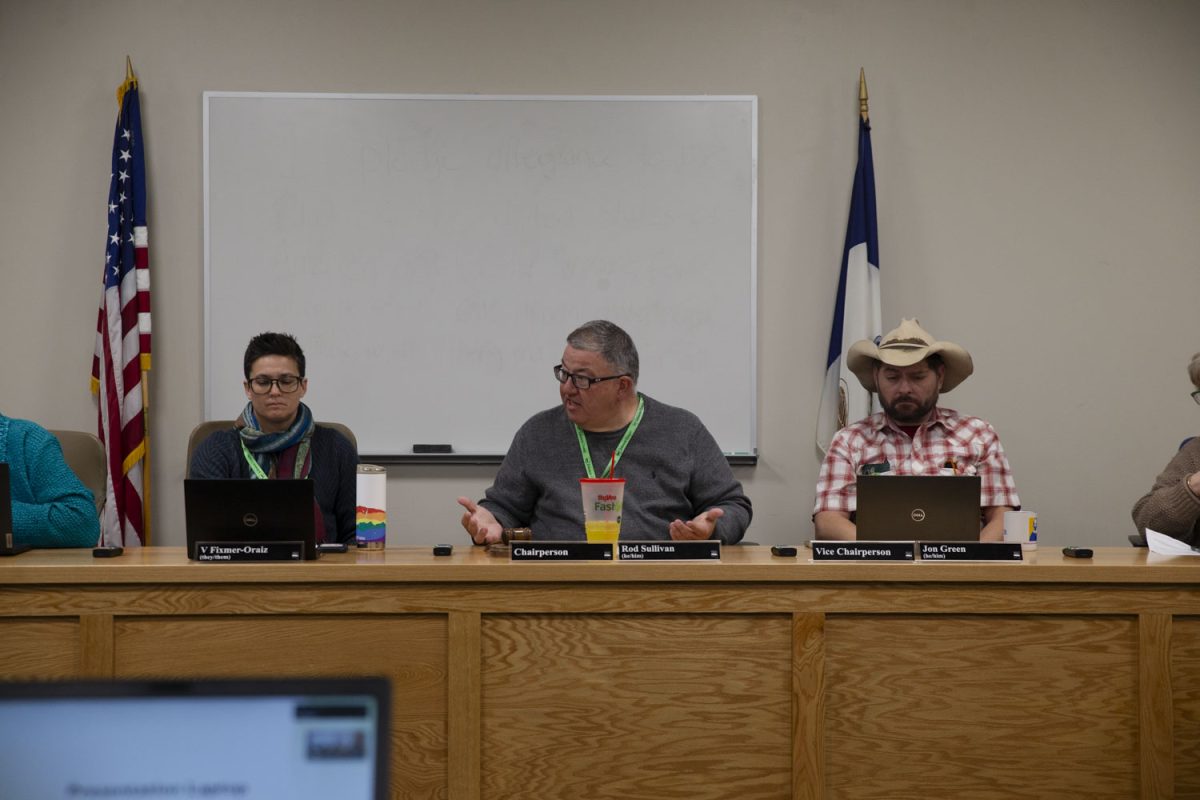Iowa City police and local bar owners are finding new ways to work together.
Following an “open house” event hosted July 31 by the Iowa City police for bar owners, police are now helping provide tips for bar staff to prevent serving alcohol to underage patrons.
George Etre, the owner of Takanami and Formorsa, had his staff meet with Iowa City police Crime Prevention Officer Jorey Bailey, who gave a presentation tailored to the restaurants’ needs.
“It was very beneficial,” said Ryan Thill, a server at both Formosa and Takanami. “They came in and explained to us what they’re looking for downtown — they’re not looking to bust anyone, they’re just trying to make sure everyone’s safe.”
Etre also said Bailey’s presentation was helpful for himself and his staff.
“I told all the other bar owners to do it, because he does a great presentation, he comes in on his own time,” he said. “We had Jorey come in and talk to our staff from both restaurants. He gave a little presentation and asked me what I wanted to focus on.”
Etre said for his restaurants, the focus was on preventing alcohol sales to underage patrons and detecting fake IDs.
He also emphasized the value of the open house event.
“It’s important we have events like this where we can build communication,” Etre said. “In the past, there have been some business owners who might have felt a disconnect between the city, police and business owners.”
Though Etre said police have always been cooperative with bar owners, this was the first open house they’d held. “I’ve had a liquor license for probably ten years, this is the first event the city’s had where they invited businesses to attend.”
Leah Cohen, owner of Bo-James, 118 E. Washington St., said some bar owners might have been apprehensive to communicate openly with police after the 21-ordinance took effect on June 1, 2010. Since the 21-ordinance took effect, several bars in the downtown have closed.
“I think there was a lot of lack of communication at that time,” she said. “I think the bars felt a little threatened with the 21-ordinance and they weren’t sure how their business would be affected.”
However, Iowa City police Sgt. Denise Brotherton said the ordinance had little bearing on the relationship between police and bar owners.
“Our patrol division has always worked well with the businesses downtown,” she said. “We don’t make ordinances, we just enforce [them], but we have a working relationship with the owners.”
Cohen also said she has noticed recently that police have made more of an effort to communicate with bar owners.
Kelly Bender, the University of Iowa campus community harm-reduction-initiative coordinator, also attended the open house. She said she felt it was an important move toward building an even better relationship between bar owners and the police.
“Following the 21-ordinance and that community debate, my impression was that in many ways it was a strained relationship,” she said. “There were some trust issues we felt we needed to address.”
Bender also said the UI community stands to benefit from a more open relationship between the two parties.
“It’s a benefit to the community in general, the university being a part of that,” she said. “I think there’s less resistance to change and I think we find better solutions when we work together because we get input from all sides.”
Bender said she is optimistic about the future of the relationship.
“We do a better job of finding solutions when we are all at the table and having a conversation,” she said.






